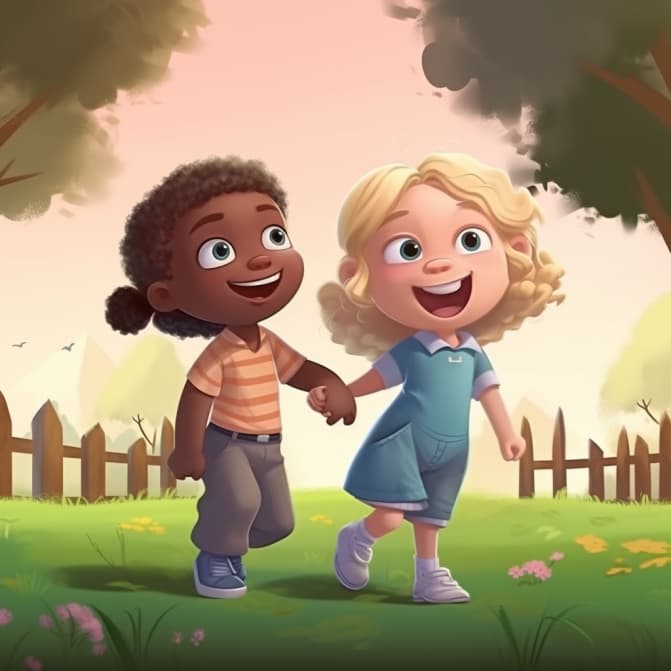Child development is a complex process that involves the physical, cognitive, social and emotional growth of the child. It is a lifelong process that begins at conception and continues into adulthood.
Factors influencing child development
Many factors influence child development, these factors include genetics, environment and culture.
The environment
The environment in which the child grows up also plays a role in his development. Children who grow up in a supportive and nurturing environment tend to thrive better than children who grow up in a neglectful or abusive environment.
Genetic
Genetics plays a role in determining a child's physical and cognitive abilities.
Culture
Culture plays an equally important role in child development. Children growing up in different cultures may have different expectations and values than children growing up in other cultures.

Different theories of child development
There are many different theories about child development. Among the best known, three theories really stand out.
Piaget's theory
This theory, proposed by the Swiss psychologist Jean Piaget, describes the different stages of cognitive development that children go through, from birth to adolescence. Piaget argues that children go through four distinct stages of cognitive development, each characterized by changes in the way they think about and understand the world around them.
Social Learning Theory
This theory, proposed by the American psychologist Albert Bandura, emphasizes the importance of learning by observation and imitation. Bandura says children learn by observing the behaviors of others and by imitating those they see as role models.
attachment theory
This theory, proposed by the English psychologist John Bowlby, focuses on the importance of emotional attachment between a child and their parent or caregiver. Bowlby argues that children who have a secure attachment with their parent or caregiver are more likely to develop positive self-esteem, a better ability to regulate their emotions, and a better ability to form healthy social relationships.
Ecological Systems Theory
This theory, proposed by the American psychologist Urie Bronfenbrenner, highlights the importance of the social and physical environment in which the child evolves. Bronfenbrenner expresses that child development is influenced by factors at different levels, such as family, community, culture, and society as a whole.
moral development theory
This theory, proposed by the Swiss psychologist Lawrence Kohlberg, describes the different stages of moral development that children go through, from infancy to adolescence. Kohlberg argues that children go through six distinct stages of moral development, each characterized by changes in the way they understand right and wrong, justice and fairness.
In sum, these different theories offer unique perspectives on child development and have all had a considerable influence on the understanding of developmental psychology.

Understand the development of the child to better support him
Child development is a fascinating and complex process. We still don't know a lot about child development, but we are still learning more. By understanding child development, we can better support the healthy growth and development of all children.
The milestones of child development
There are different stages of a child's emotional development. These stages begin with the prenatal period and continue through adulthood. Development generally takes longer for some people than for others because each individual matures at a different rate. However, there are common and general milestones that all children go through as they grow.
The prenatal period
The prenatal period refers to the nine months before a baby is born. It is true that the mother's emotions during pregnancy can have an impact on the general well-being of the unborn child. For example, maternal stress during pregnancy may be associated with an increased risk of premature birth or low birth weight, which in turn may affect the health and development of the child after birth.
Early childhood (0-2 years)
During this time, babies are often able to communicate their needs and emotions non-verbally. They may express their joy, sadness, anger, and fear through crying, smiling, laughing, or shouting.
Babies simultaneously begin to develop their own personality and their own style of social interaction. They learn to walk, talk and interact with their environment. They also develop their sense of autonomy and their attachment to the people who take care of them.
Early childhood (3-5 years)
During infancy, children continue to develop their physical, cognitive and social skills. They learn to play, share and cooperate with others. They also develop their imagination and creativity.
As they grow, they develop a more sophisticated understanding of their emotions and those of others. They begin to understand basic emotions such as joy, sadness, anger and fear, and to use words to express them. Children in this age group also begin to socialize more with other children, learn to share and resolve conflicts.
Middle childhood (6-11 years old)
During middle childhood, children gain a sense of independence and self-reliance. They learn to follow rules and participate in group activities. They also improve their academic skills.
During this period, children also develop a more nuanced understanding of their emotions and those of others. They begin to understand more complex emotions such as:
- frustration,
- jealousy,
- shame.
Children in this age range are also beginning to become aware of their social identity, which can impact their self esteem and their social behavior.
Adolescence (12-18 years old)
During this period, adolescents face many physical, emotional and social changes. They begin to develop their own identity, which can be influenced by their peers, family and culture.
Teenagers may experience intense and changing emotions, and may find it difficult to manage their emotions effectively. They may also face challenges in their social and romantic relationships, and need to learn how to navigate these situations in healthy and appropriate ways. They also make decisions about their future.

How to support child development
Here are some tips to support child development:
Provide a safe and supportive environment.
Children need to feel safe and loved to develop properly. Make sure your child has a safe place to play and explore, and has access to loving, supportive adults.
Encourage play and exploration.
Play is essential to child development. It helps children discover the world around them and develop their physical, cognitive and social skills. Give your child plenty of opportunities to play, both indoors and outdoors.
Read to your child.
Reading to your child helps him develop his language and his reading and writing skills. It also helps her bond with you and learn about the world around her. Be sure to read to your child every day, even if it's just for a few minutes.
Talk to your child.
Talking to your child helps him develop his language and communication skills because it also allows you to get to know your child, his thoughts and his feelings better. Be sure to talk to your child every day, about everything and nothing.
Set limits and boundaries.
Children need limits and boundaries to feel safe. They also need to learn to follow rules. Set clear and consistent boundaries for your child and be prepared to enforce them.
Be patient.
Child development is a slow and gradual process. There will be ups and downs along the way. Be patient with your child and with yourself, and celebrate their successes throughout the process.
To conclude
Child development is a complex and fascinating process that deserves our full attention. Each stage of its development is important and builds on the previous stages. By understanding the milestones in a child's development, parents and caregivers can give them the support they need to grow, thrive and reach their full potential.
